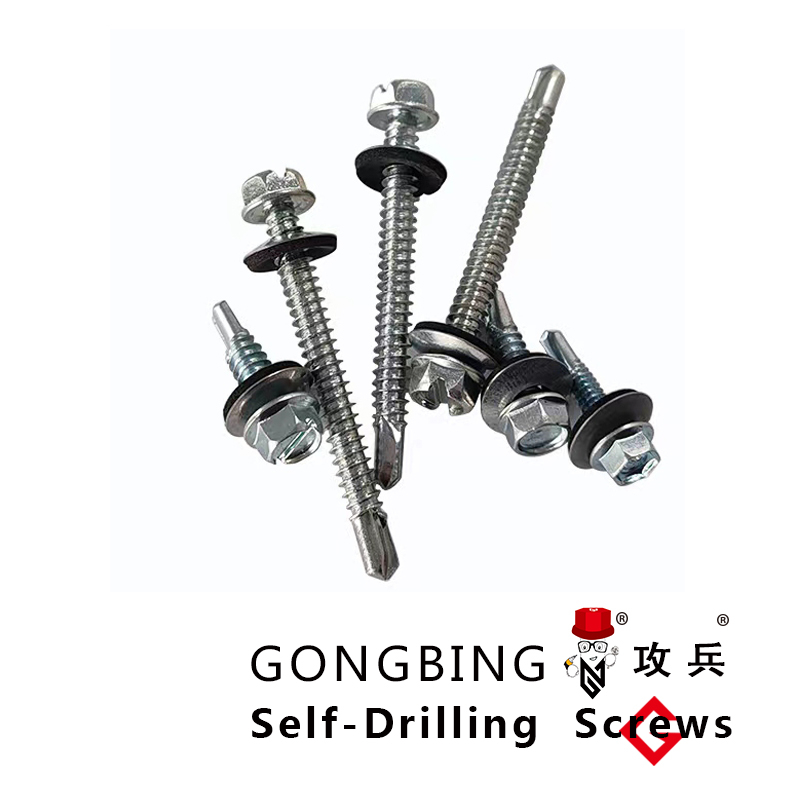hammer head bolts
The Versatility and Importance of Hammer Head Bolts
Hammer head bolts, often referred to as hammer bolts or mushroom head bolts, are a specialized type of fastener that is widely used in various applications ranging from construction to automotive industries. Their unique design makes them particularly advantageous in scenarios where secure fastening is essential.
Design and Structure
The hallmark of hammer head bolts is their distinctive head shape, which resembles a hammer's head. This shape allows for a greater surface area when struck, facilitating the necessary force to ensure a tight fit in the fastening process. Typically, these bolts feature a thicker head compared to standard bolts, which helps prevent pulling through softer materials like wood or plastic. The hammer head design can provide increased resistance to loosening due to vibrations, making them especially useful in dynamic environments.
Materials and Coatings
Hammer head bolts are manufactured from a variety of materials, each chosen for their specific properties and suitability for particular applications. Common materials include stainless steel, carbon steel, and brass. Stainless steel versions are favored for their corrosion resistance, making them ideal for outdoor construction and marine environments. Meanwhile, carbon steel bolts are often used in heavy-duty applications due to their strength and durability.
Coatings also play a critical role in the performance of hammer head bolts. Zinc plating, for instance, is a popular choice for enhancing corrosion resistance, while black oxide coating is often used for aesthetic purposes and to provide a degree of rust prevention without compromising the bolt's strength.
Applications
The versatility of hammer head bolts means they can be found across multiple industries. In the construction sector, they are commonly used for fastening structural components in wooden frames, such as roof trusses and flooring systems. Their broad head design helps distribute tension, reducing the risk of splitting the wood.
hammer head bolts

In the automotive industry, hammer head bolts can be found fastening various components, including engine parts and chassis
. The robust nature and surface area of these bolts help ensure that crucial parts remain secure during the mechanical stresses of vehicle operation.Additionally, hammer head bolts are prevalent in the manufacturing of machinery and equipment. Their ability to withstand vibrations and heavy loads makes them ideal for securing parts that undergo significant movement or stress during operation.
Installation and Use
Installing hammer head bolts follows a straightforward process, typically involving the use of a hammer or a mallet to set the bolt into place. This method is particularly beneficial in construction, where workers can quickly secure multiple fasteners without the need for elaborate tools or complicated setups. The simplicity of installation, combined with the reliability of the fastening, contributes to their popularity in both professional and DIY projects.
Advantages
The primary advantages of hammer head bolts stem from their strength, ease of use, and resilience. Their unique design minimizes the likelihood of loosening over time, which is crucial in maintaining the integrity of structures and machinery. Furthermore, hammer head bolts can often be reused, making them a cost-effective option for applications requiring frequent disassembly and reassembly.
Conclusion
In conclusion, hammer head bolts are integral components in a multitude of applications due to their unique design, material versatility, and ease of use. Whether in construction, automotive, or machinery manufacturing, these bolts provide a reliable solution for ensuring secure fastening in critical environments. As industries continue to evolve and demand higher standards in safety and durability, the importance of hammer head bolts will remain, cementing their role as fundamental fasteners in various sectors. Emphasizing their utility and robustness, it becomes clear that hammer head bolts are not just simple fasteners; they are essential tools that contribute to the structural integrity and reliability of countless products and constructions.
-
Weatherproof Plastic Expansion Anchors for OutdoorNewsJun.06,2025
-
Sustainability in the Supply Chain: Eco-Friendly TEK Screws ProductionNewsJun.06,2025
-
Load-Bearing Capacity of External Insulation FixingsNewsJun.06,2025
-
Double Head Bolts: Enhancing Efficiency in Industrial MachineryNewsJun.06,2025
-
Corrosion Resistance in Chipboard Screws: Coatings for Wholesale DurabilityNewsJun.06,2025
-
Butterfly Toggle Bolts : Enhancing Structural ResilienceNewsJun.06,2025
